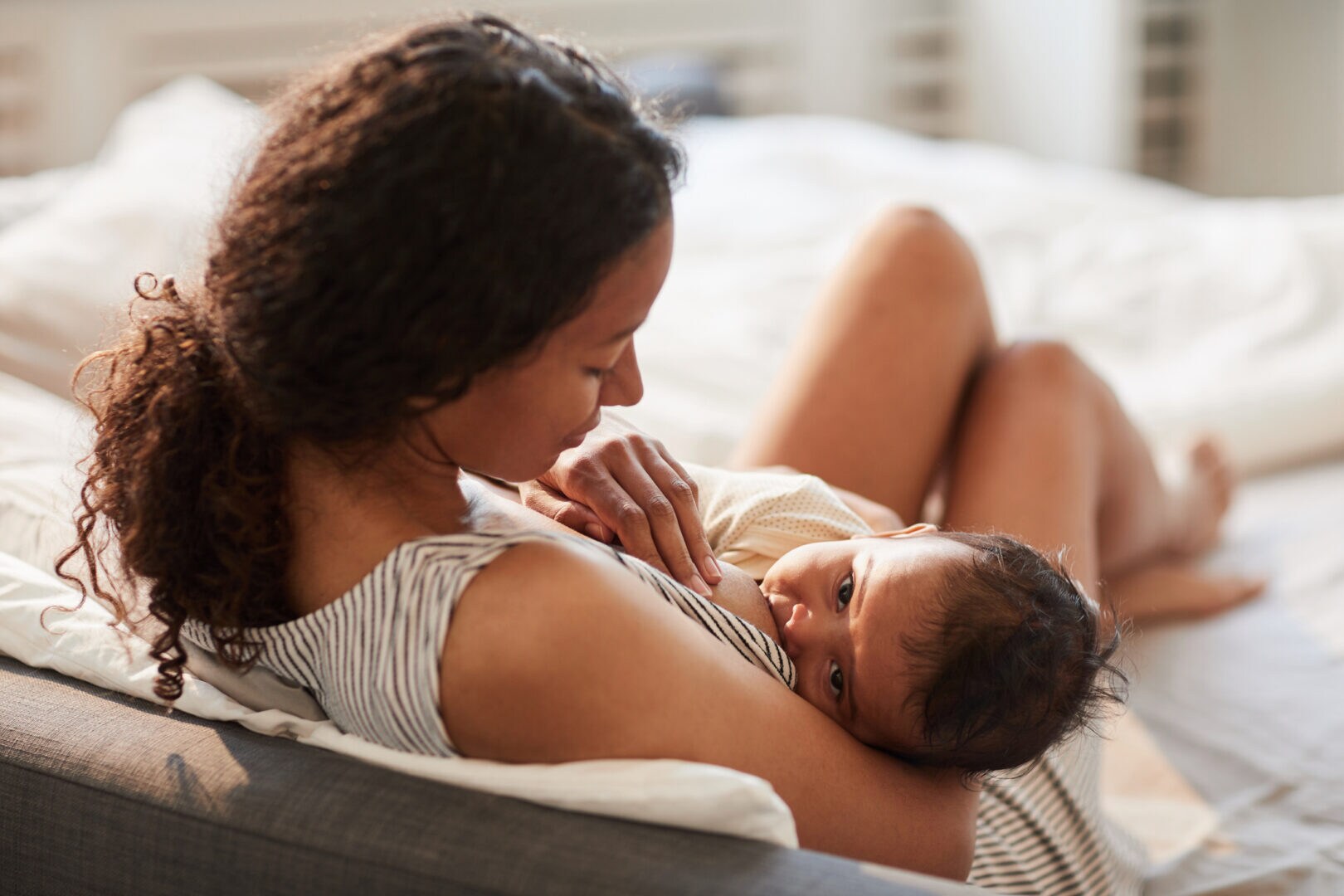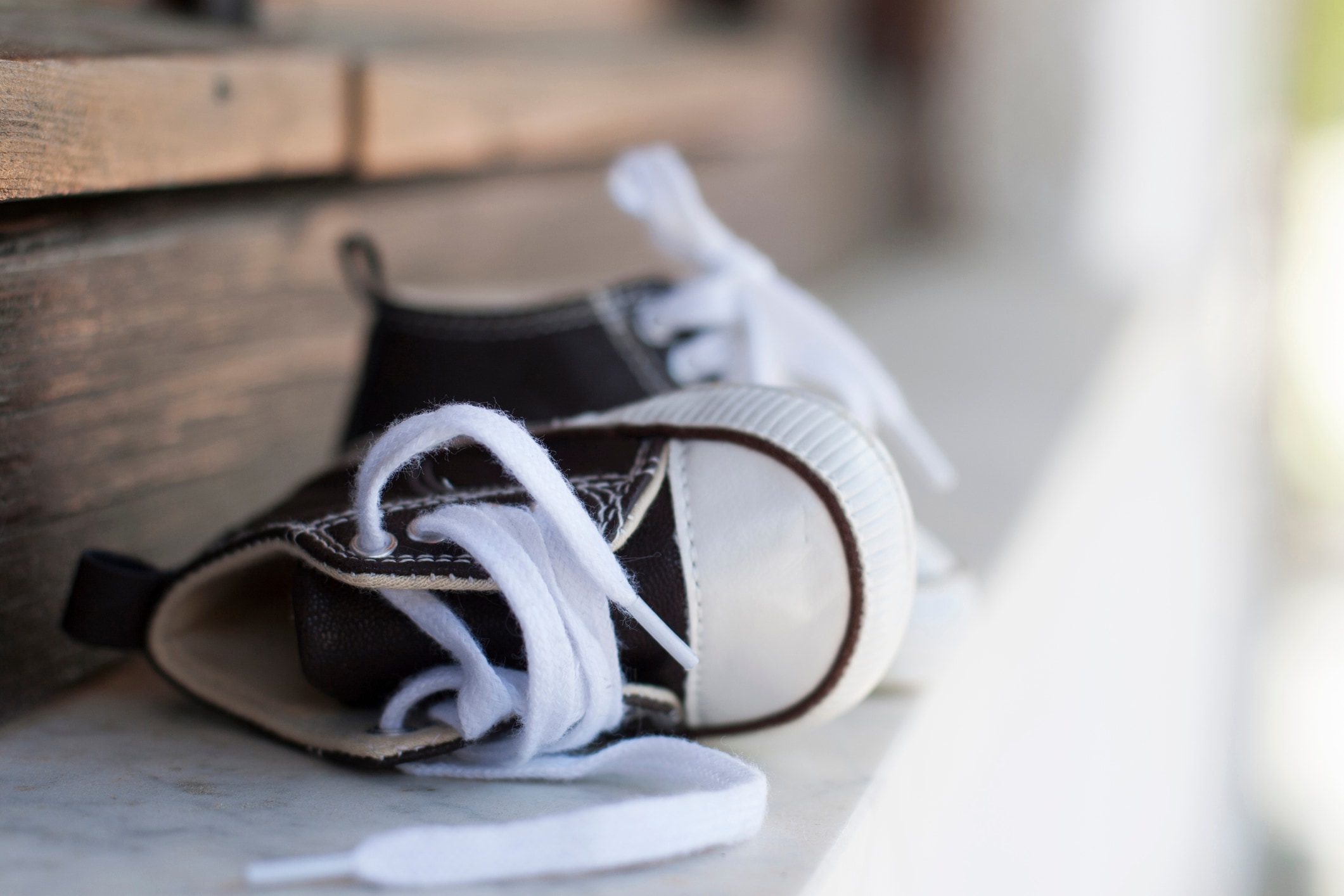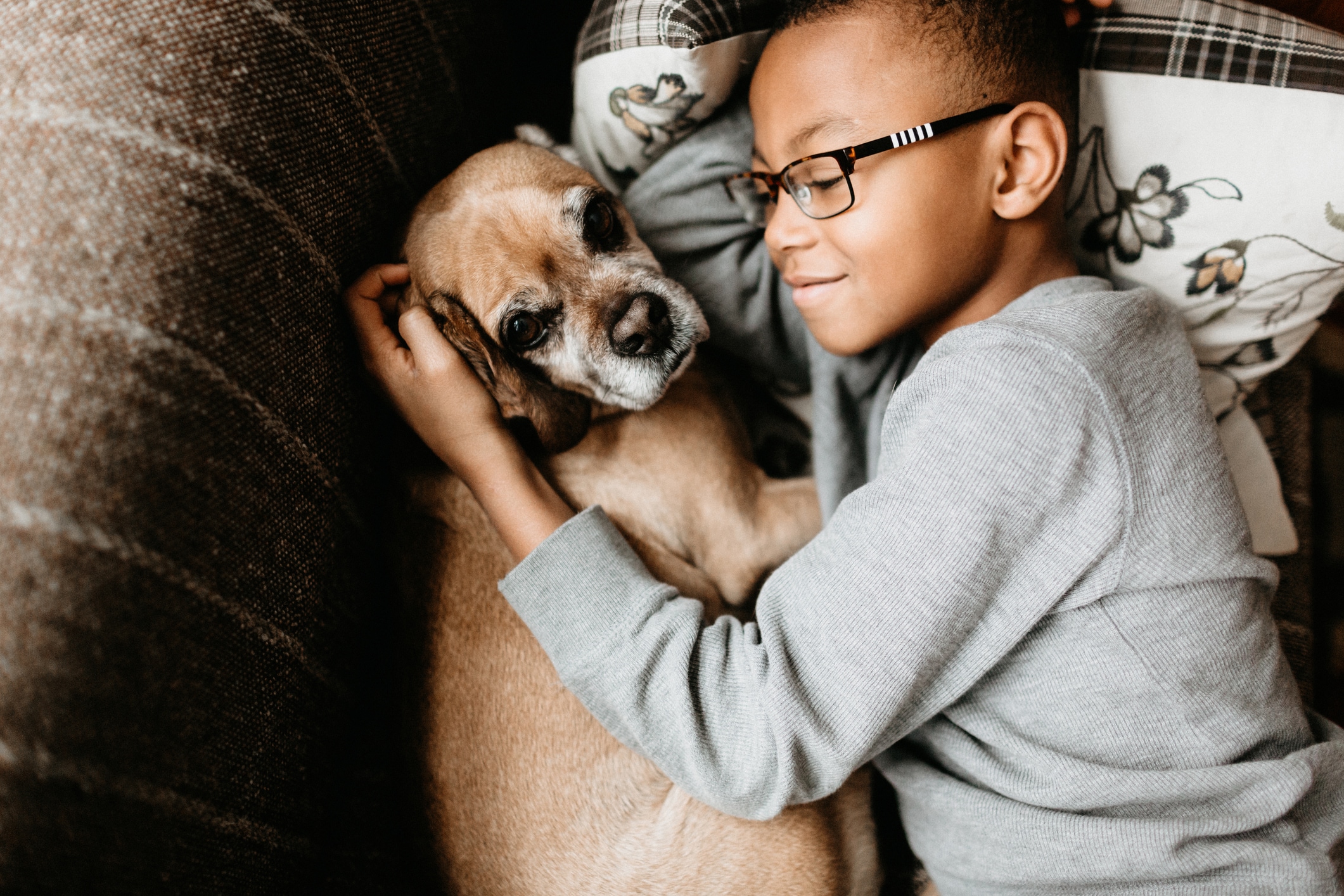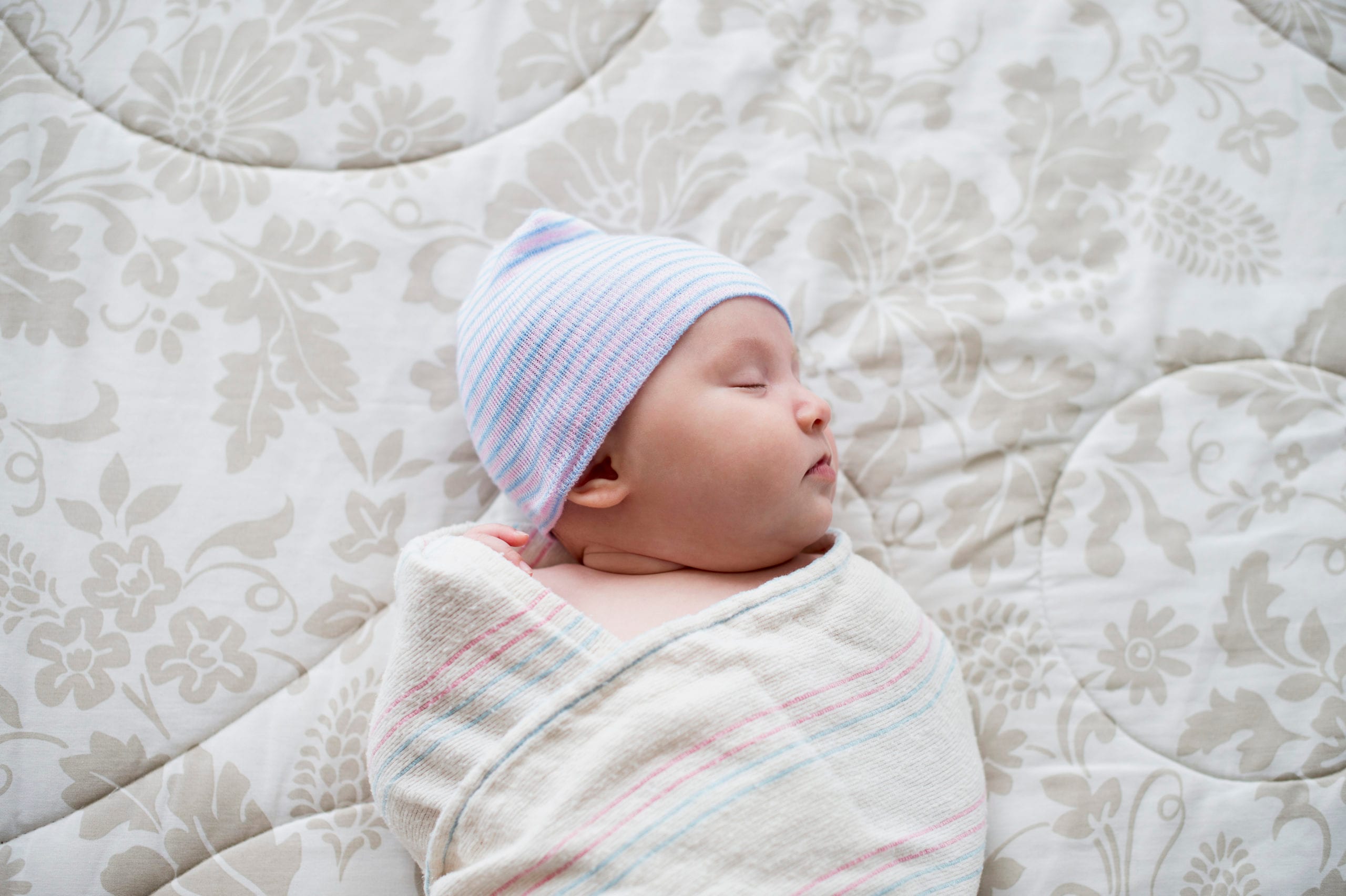If you are nursing a little one right now, you probably have many questions and concerns about COVID and breastfeeding, whether about breastfeeding in general, what to do if you test positive or about the safety of getting the COVID vaccine.
Thankfully, there are very few circumstances where COVID and breastfeeding do not mix, says Melanie Silverman, lactation consultant and chief clinical officer at Pacify. “Breastfeeding remains the healthiest way to feed a baby and has tremendous long-term health benefits,” Silverman assures.
Still, even if you know that breastfeeding during COVID is generally a good idea, you likely have many lingering questions as you navigate the pandemic. Here, experts weigh in on the most frequently asked questions about COVID and breastfeeding.
Is breastfeeding recommended during the COVID pandemic?
Experts are in agreement that breastfeeding is one of best things you can do for your baby at this time. As the Academy of American Pediatrics (AAP) points out, breastfeeding is always a great way to prevent babies from getting sick, and the same is true during the pandemic. As an added bonus, the hormones of breastfeeding are natural stress relievers for parents (and parents need all the stress relief they can get right now!).
Dr. Diego Hijano, deputy medical director of occupational health at St. Jude Children’s Research Hospital, agrees. “Breastfeeding brings many benefits to the mother and the infant.” Hijano says, “It is recommended to breastfeed during the pandemic.”
“Breastfeeding brings many benefits to the mother and the infant. It is recommended to breastfeed during the pandemic.”
— DR. DIEGO HIJANO
Should I wear a mask while breastfeeding?
It’s not necessary to wear a mask while breastfeeding if you don’t have suspected or confirmed COVID, whether you are vaccinated or not, says Dr. Mitchell S. Kramer, chairman of the department of obstetrics and gynecology at Huntington Hospital. However, the Centers for Disease Control and Prevention (CDC) recommends wearing a mask and taking proper sanitation precautions if you test positive for COVID. More on that in a bit.
Hijano adds that any unvaccinated caregivers you may use should wear a mask while feeding the child as well, adding that it is recommended that all caregivers be fully vaccinated.
Do babies/toddlers get COVID antibodies from breast milk?
The good news is that if you have been infected with COVID, or if you have received a COVID vaccination, there will be COVID antibodies in your breast milk, Hijano says. Numerous studies — including a September 2021 study that found COVID antibodies in breast milk after vaccination — confirm this.
That said, at this time, it’s not entirely clear yet what role these antibodies play. “More studies are needed to determine how these antibodies protect the baby,” Hijano explains.
Should I get vaccinated while breastfeeding?
For Lauren Finney Harden, from Atlanta, the decision to get vaccinated against COVID while breastfeeding was a no-brainer. She got her vaccine when her daughter was three months old. Both her OB-GYN and her daughter’s pediatrician encouraged it.
“I got the vaccine March 13th, 2021, a year to the day of our first lockdown,” Harden shares. “I cried, I was so overwhelmed with gratitude and relief to not only be able to protect myself but my baby.”
“Breastfeeding parents can and should be vaccinated,” says Kramer. “The vaccine is safe and effective, with no adverse impact on breastfeeding or breast milk or for baby.”
“Breastfeeding parents can and should be vaccinated. The vaccine is safe and effective, with no adverse impact on breastfeeding or breast milk or for baby.”
— DR. MITCHELL S. KRAMER
Additionally, the CDC advises that any caregiver who is feeding pumped milk to your child be fully vaccinated against COVID as well.
Will the vaccine affect my breastfeeding child?
The COVID vaccine will not affect your child, says Hijano. For example, if you got an mRNA vaccine, such as the Pfizer or Moderna vaccine, it’s very unlikely that the vaccine components will get into your milk.
“In the unlikely event that mRNA is present in milk,” Hijano says, “it would be expected to be digested by the child and would be unlikely to have any biological effects.”
What if I have COVID symptoms or test positive for COVID?
While most experts recommend continued breastfeeding while you are infected with COVID, there is a lot of confusing information out there, and it’s easy to feel unsure about what to do if you or someone in your household catches COVID.
Amanda McCracken, from Boulder, Colorado, got COVID when her nursing baby was 6 months old. She says her doctors told her that by continuing to breastfeed she would pass COVID antibodies to her daughter.
Can COVID be spread through breast milk?
At the beginning of the pandemic, it was unclear if COVID could spread in breast milk, but at this point, says Hijano, it’s become increasingly clear that COVID does not spread through breast milk.
In fact, after her diagnosis with COVID, McCracken says, “I immediately asked my doctor if I could pass on COVID via my breast milk.” She explains that her doctors assured her she couldn’t infect her daughter through breast milk.
Should I wear a mask while breastfeeding if I have COVID symptoms or test positive?
The first question you may have if you have been exposed to or test positive for COVID is how you protect your nursing baby or toddler from catching it.
According to Silverman, you should wear a mask while breastfeeding to decrease the risk that your child will contract the virus. COVID can still spread readily through respiratory particles, she says.
How else can I protect my breastfeeding baby/toddler?
In addition to wearing a mask, Silverman adds that there are few other precautions you should take while breastfeeding to decrease the risk of spreading COVID to the breastfeeding child.
Additional safety precautions include:
- Wash your hands with soap and water before breastfeeding or pumping.
- Clean and sanitize pumps and other feeding equipment before and after use.
McCracken says she began taking precautions as soon as she got her diagnosis. “I did a combination of breastfeeding and pumping and was super careful to wear a mask while breastfeeding and pumping,” she shares. “I also washed my hands before doing each.”
Can I continue breastfeeding or should I pump if I test positive?
If you test positive for COVID, talk to your doctor about the pros and cons of breastfeeding or pumping while you are infected. “In every situation, parents should feel empowered to choose the best method of feeding their baby,” says Silverman.
“Parents can continue with direct breastfeeding,” says Hijano, “but it is important to wash your hands before holding the baby and to use a mask.”
And whether you choose to breastfeed directly or not, Hijano emphasizes that it’s important for your baby to receive breast milk while you have COVID, as your milk contains antibodies that can protect your baby from serious illness. “The milk is safe and important for the baby,” he says.
Parents may choose to pump instead of directly breastfeed if they are feeling very unwell or actively coughing, says Hijano, but that’s a personal choice.
To further decrease the possibility of transmission, Hijano also recommends that breastfeeding parents with COVID maintain physical distance from the child when they are not nursing and allow family members to pitch in with hands-on care. Extended family or a paid caregiver can also help out; however, the CDC does advise caregivers be fully vaccinated and that anyone who has been in contact with the breastfeeding person wear a mask while feeding the child for the duration of their isolation and quarantine periods.
Should I worry about having enough milk?
There is no evidence that getting a COVID infection will reduce your milk supply, says Hijano. However, he adds the caveat that illnesses in general can decrease your milk supply, especially if you are feeling fatigued.
If you have COVID and are taking medications like antihistamines or decongestants, these may lower your milk supply, Silverman explains. She advises breastfeeding parents to discuss any medication they are taking with their doctor or lactation consultant.
What’s the final advice from experts?
One of the best ways you can keep your child safe during the pandemic is to get the COVID vaccine, Hijano advises. This is especially important, he says, since babies are too young to be vaccinated at this time.
Kramer is on the same page. “Parents can protect their baby by getting vaccinated if not already vaccinated and should prevent unvaccinated visitors from coming into contact with the baby, including other children outside of family,” he suggests.
The pandemic is always changing, and as new research comes out, guidelines will change as well. Additionally, every breastfeeding parent and their child have different medical needs. If you have any questions about COVID and breastfeeding, reach out to your healthcare provider or your child’s pediatrician.





